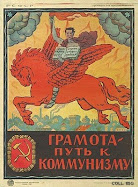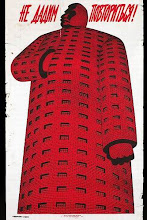 Where to draw the line?
Where to draw the line?This question has confronted the international community - and the U.S. presidential campaign - ever since open war broke out between Georgia and its imposing neighbor to the north.
The United States has been talking tough about the sanctity of Georgia's "territorial integrity" over the last few weeks. U.S. policy towards the former Soviet Union starts from the premise that the boundaries of the old USSR are inviolate. American foreign policy officials have not, however, articulated what particular interests the U.S. has with regard to whether Abkhazia or South Ossetia ends up as part of an independent Georgia or as part of an independent Russia.
Why is it that the U.S. puts so much weight on what were - until relatively recently - internal Soviet boundaries, largely drawn by Stalin and succeeding General Secretaries of the Communist Party? If the principal of "territorial integrity" for these newly independent states is to be sacrosanct, shouldn't we at least understand how these borders came to be drawn? Why did Stalin craft borders that resulted in the South Ossetians being split from their brethren to the North? Why, after the 1930's, did Moscow grant favored status to Abkhazians - a minority ethnicity within the Abkhazian Autonomous region? Is there any good reason for respecting Georgia's claim to Abkhazia and South Ossetia, even though neither area has been under its control since the Soviet Union disintegrated?
Before the 1917 Revolution, Georgia was part of the Russian Empire. Georgians had ruled over a larger kingdom back in the 13th century, but it has been a long time since a unified Georgian kingdom exercised independent power in the region. Russia established its hegemony over Georgia in about 1800 and succeeded in fighting off Persian and Ottoman forces, expanding the territory over the next 75 years to include additional provinces, such as present day Abkhazia. After the 1917 Revolution, Georgia experienced only a brief period of independence.
But the Red Army was on the march, and it was not long  before the armed wing of the Bolshevik Party had established control over Georgia and the other former south caucus regions that had recently been under Russian Imperial rule. From the early 1920's until 1936, Stalin governed the entire region as the Transcaucasian Soviet Federated Socialist Republic (TSFSR) -- Закавказская Советская Федеративная Социалистическая Республика (ЗСФСР). From 1936 and until the collapse of the Soviet Union, the three Transcauscus Republics - Armenia, Azerbaijan, and Georgia - were governed as Union Republics, each with nominal administrative authority, but all under the thumb of the Politburo of the Communist Party of the Soviet Union. Georgia and Armenia maintained their alphabets, national churches and perhaps slightly more autonomy than many of the other Soviet Union Republics, but severe limits on local power remained.
before the armed wing of the Bolshevik Party had established control over Georgia and the other former south caucus regions that had recently been under Russian Imperial rule. From the early 1920's until 1936, Stalin governed the entire region as the Transcaucasian Soviet Federated Socialist Republic (TSFSR) -- Закавказская Советская Федеративная Социалистическая Республика (ЗСФСР). From 1936 and until the collapse of the Soviet Union, the three Transcauscus Republics - Armenia, Azerbaijan, and Georgia - were governed as Union Republics, each with nominal administrative authority, but all under the thumb of the Politburo of the Communist Party of the Soviet Union. Georgia and Armenia maintained their alphabets, national churches and perhaps slightly more autonomy than many of the other Soviet Union Republics, but severe limits on local power remained.
Stalin's policy towards ethnic minorities is largely responsible for the current Caucasus kerfuffle. As has been widely reported, Stalin himself was a Georgian. But he did not show any special favor to his homeland during his reign.
In 1918, in the midst of the civil war, Joseph Stalin was named by Lenin as the People's Commissar for Nationalities' Affairs . In this capacity, he was tasked with establishing Soviet power over the many, diverse, non-Russian peoples in the former Russian Empire. One strategy he pioneered to maintain the Communist Party's grip over the far-flung people's of the Soviet Union was to exploit ethnic identity.Martin Sieff, writing for UPI, sums up the policy well:
As commissar for nationalities, Stalin specialized in drawing borders that were conflicting, contradictory, deliberately ambiguous and confusing, impossible to maintain and expressly designed to pit neighboring peoples against each other for generations to come. Having studied carefully the ancient Roman principle of "divide and rule," he applied that to the new Soviet state he helped Lenin to construct.
As a result, from the very beginning, the Soviet republic of Georgia in the Caucasus was saddled with two quasi-autonomous internal regions of South Ossetia and Abkhazia that were encouraged to look to the Soviet capital in Moscow for survival and protection against the local Georgian rulers down in Tbilisi.
[Paul Goble for the Moscow Times offers additional insight on this legacy.]As long as all political and military power flowed from Moscow - enforced by the Cheka, the GULag, and if need by, the Red Army - the plan worked to help keep local authorities off balance. Overlaying the policy towards ethnic minorities was a ubiquitous Russian linguistic and cultural supremacy accompanied by the slogan "дружба народов" - friendship between different peoples of the Soviet Union - giving lip-service to the idea that all people's in the USSR were equal.
Vartan Gregorian of the Carnegie Corporation sums up the contradictions inherent in the Soviet Union's "friendship of nations" policy:
This goal was best exemplified in the “Stalin” constitution of 1936, under which, eventually, 100 different national cultures living in 16 soviet federated socialist republics, including 6 territories, 123 regions, 20 autonomous republics, 8 autonomous regions and 10 autonomous districts were ostensibly granted the right to secede from the union but at the same time, pressed to recognize their obligation, in the name of proletarian solidarity, to denounce even the possibility of such a move. After all, Marxist theory, as formulated by Joseph Stalin, held that “a nation is a historically constituted, stable community of people, formed on the basis of a common language, territory, economic life, and psychological make-up manifested in a common culture,” and that those countries and peoples comprising the Soviet Union had joined it voluntarily. Sustaining this proposition was easier said than done. In reality, the same ethnic and nationalist tensions that beset the Russian Empire fermented beneath the Soviet structure even though the Communist Party hierarchy asserted that it had been able to solve the nationality question and hence, had successfully confronted the issue of nationalism.
Because communist ideology was firmly opposed to colonialism or imperialism, it was important to maintain the illusion that the member republics of the USSR had joined voluntarily and could leave at will. By the time Gorbachev's Glasnost policy had revealed the state of decay of the Soviet Union, a number of republics and autonomous regions were ready to exercise what had heretofore been only a nominal right of secession.
Abkhazia and South Ossetia had as much legal right to secede from Georgia as Georgia had to call it quits with the Soviet Union.
Next post - how the legacy of Soviet policy towards ethnic minorities has played out in Abkhazia and South Ossetia (spoiler alert - while Georgia pushes for its right to self determination and independence from Russia, it stomps down on the people of South Ossetia who seek to exercise those same rights by attempting to join with their fellow Ossetians to the north - and I am not referring to this month's military action, but to 1991, before an independent Georgia existed). And why is the United States perpetuating its containment policy against Russia, helping to perpetuate Putin's exploitation of a resurgent Russian nationalism to build an authoritarian Russian state?

























